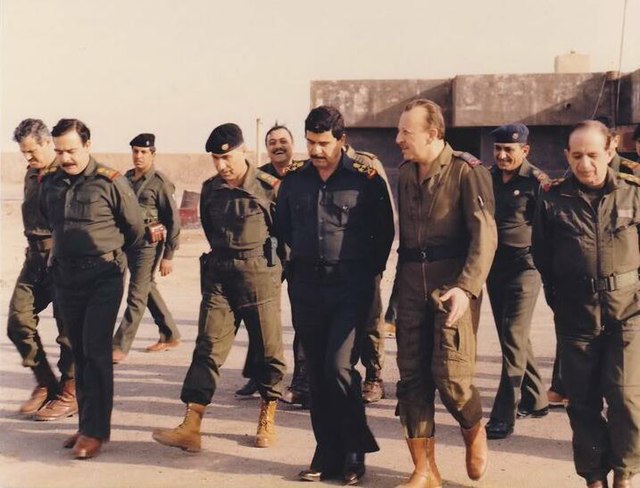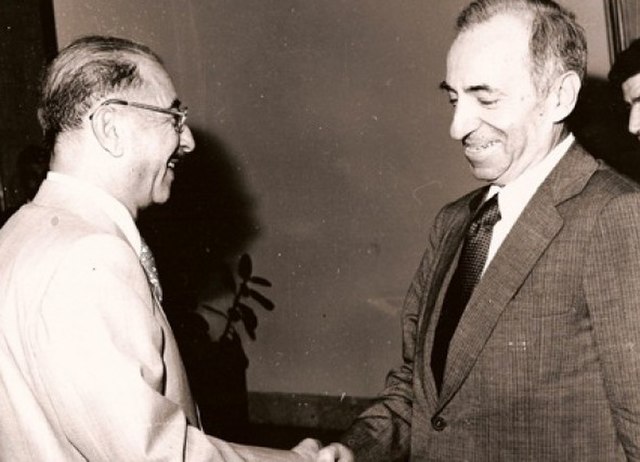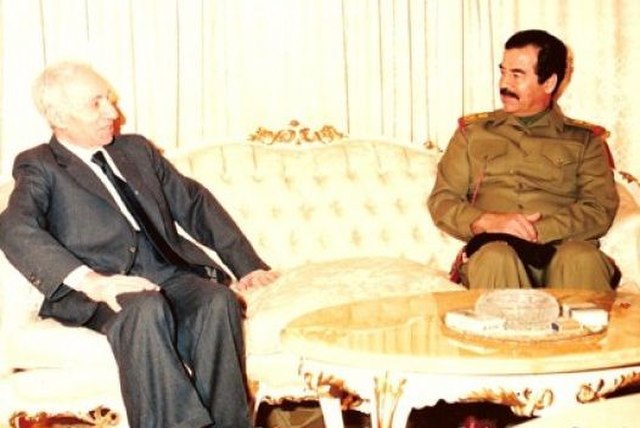United Nations Security Council Resolution 1441
United Nations Security Council Resolution 1441 is a United Nations Security Council resolution adopted unanimously by the United Nations Security Council on 8 November 2002, offering Iraq under Saddam Hussein "a final opportunity to comply with its disarmament obligations" that had been set out in several previous resolutions. It provided a legal justification for the subsequent US-led invasion of Iraq.
George W. Bush addressed the General Assembly on 12 September 2002 to outline the complaints of the United States against the Iraqi government.
Ba'athist Iraq, officially the Iraqi Republic (1968–1992) and later the Republic of Iraq (1992–2003), was the Iraqi state between 1968 and 2003 under the rule of the Arab Socialist Ba'ath Party. This period began with high economic growth, but ended with the country facing severe levels of socio-political isolation and economic stagnation. By the late 1990s, the average annual income had decreased drastically due to a combination of external and internal factors. UNSC sanctions against Iraq, in particular, were widely criticized for negatively impacting the country's quality of life, prompting the establishment of the Oil-for-Food Programme. The Ba'athist period formally came to an end with the 2003 invasion of Iraq, and the Ba'ath Party has since been indefinitely banned across the country.
Ahmed Hassan al-Bakr was de jure leader of Iraq from 1968 to 1979.
Adnan Khairallah, Iraqi Defense Minister, meeting with Iraqi soldiers during the Iran-Iraq war.
Ahmed Hassan al-Bakr (left), the Regional Secretary of the Iraqi Ba'ath, shaking hands with Michel Aflaq, principal founder of Ba'athist thought, in 1968.
Saddam Hussein (right) talking with founder of Ba'athism and Ba'ath Party leader Michel Aflaq in 1988.





